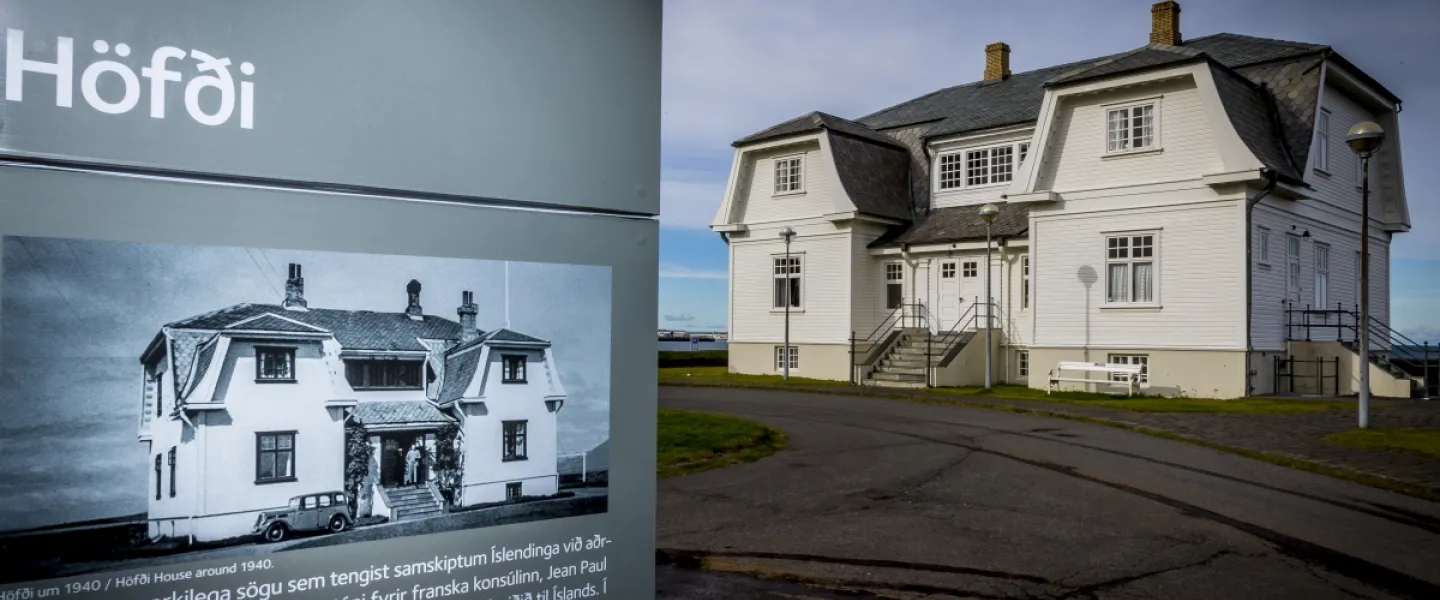
The University of Iceland and the City of Reykjavik are launching Höfði Reykjavik Peace Centre on October 7, 2016. The opening seminar entitled Rethinking Peace and Power will take place between 13:00 and 17:30 in the Ceremonial Hall of the University of Iceland, with opening remarks by Guðni Th. Jóhannesson, President of Iceland.
The panellists and audience will engage in a dialogue on the enhanced role of cities and citizens in promoting sustainable peace and on the power of the visual narrative in affecting opinion and igniting action in the world today.
Amongst participants are the keynote speakers, Steve Killelea, Founder & Executive Chairman of the Institute for Economics and Peace and author of the Global Peace Index and Annika Bergman Rosamond, Senior Lecturer at the Department of Political Science, Lund University. Other participants include Michele Acuto, Professor in Diplomacy and Urban Theory at University College London, Melanie Greenberg, President and CEO of Alliance for Peacebuilding, renowned Film Director Darren Aronofsky and Syrian Documentarist Obaidah Zytoon.
The first open seminar of HÖFÐI Reykjavík Peace Centre will take place the next day, Saturday, October 8 between 15:00 and 17:30 in the Ceremonial Hall of the University of Iceland. The seminar will be dedicated to the commemoration of the 1986 summit meeting of Presidents Ronald Reagan and Mikhail Gorbachev, a historical event that marked the beginning of the end of the Cold War. Amongst speakers are Ms Vigdís Finnbogadóttir, former President of Iceland, Lilja Alfreðsdóttir, Minister for Foreign Affairs, Dagur B. Eggertsson, Mayor of Reykjavík, Albert Jónsson, Ambassador and Silja Bára Ómarsdóttir, Adjunct Lecturer in Political Science at the University of Iceland. Moreover, UN Secretary-General, Ban Ki-Moon, will address the seminar.
HÖFÐI Reykjavík Peace Centre is run under the auspices of the Institute of International Affairs at the University of Iceland and is a forum for international multidisciplinary cooperation, with an emphasis on the role of small states, cities and citizens in promoting peace. Reykjavik has placed great emphasis on human rights and peace in its work and policies. The launching of HÖFÐI Reykjavik Peace Centre at the University of Iceland is thus an important next step in Reykjavík's mission of becoming a city of peace. The Peace Centre will promote non-violent communications, the eradication of interpersonal violence and peaceful relations between states and organizations. Additionally, it will promote peace through research and education, including the development of a graduate programme in peace and conflict studies at the University of Iceland.
HÖFÐI Reykjavík Peace Centre will carry out diverse projects during the first years of its operation, such as analysis and action plan against hate speech to be utilized in raising awareness on the issue. Among other important projects of HÖFÐI Reykjavík Peace Centre is the development of a four‐day summer school for children of diverse origin, where they will learn from each other the importance of peaceful communication and constructive dialogue, in an interactive environment.
The creation of HÖFÐI Reykjavík Peace Centre provides the Institute of International Affairs with the opportunity of expanding its research areas that will lead to a greater emphasis on the challenges now facing modern societies, such as climate change, immigration and refugee issues, increased diversity, as well as rising nationalism and populism in the mainstream discourse. HÖFÐI Reykjavík Peace Centre will also organise open seminars at the University of Iceland, focused on the role of cities, small states and citizens in promoting peace. To promote the different research fields within the Institute, an annual international conference will be organised in collaboration with local and international partners, bringing together different actors in a dialogue on current international affairs and issues related to peace.